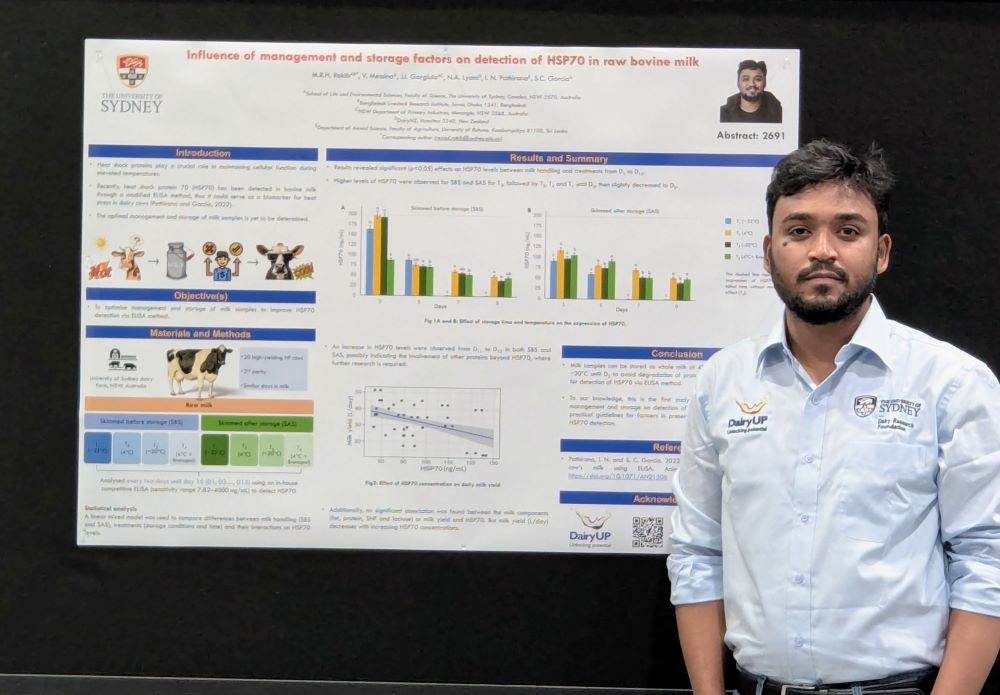Potential of HSP70 as a non-invasive biomarker for detecting heat stress in dairy cow.

Above: PhD Student Md Rezaul H Rakib
Lead Author: Md Rezaul H Rakib
Project P9b: Milk as an indicator of heat load
This study compared the effectiveness of heat stress detection methods, with a particular focus on HSP70, a protein in milk that has been identified as a potential non-invasive biomarker. Temperature humidity index (THI) was used as a comparative standard to assess the direct and lag effect of heat stress detection methods. Data was collected from 25 Holstein Friesian cows on a pasture-based system over seven weeks, including rectal temperature, infrared thermography, milk HSP70 concentration, milk yield and composition, reticulorumen temperature, and meteorological data.
Milk HSP70 showed a significant correlation with THI, but with a delayed response peaking at a 35-hour lag. Reticulorumen temperature correlated at a 7-hour lag, while rectal temperature and infrared thermography showed immediate correlations. Milk yield negatively correlated with THI, declining from a 25-hour lag, while milk protein, lactose, and SNF reduced significantly at an 11-hour lag. Integrating HSP70 could improve heat stress prediction and help select heat-tolerant cows, enhancing welfare.
About Dairy UP
Dairy UP is a collaborative research, development and extension program for the NSW dairy industry. It aims to unlock the potential of pastures, cows, water and milk to increase productivity and profitability, and de-risk the industry and develop new markets.
